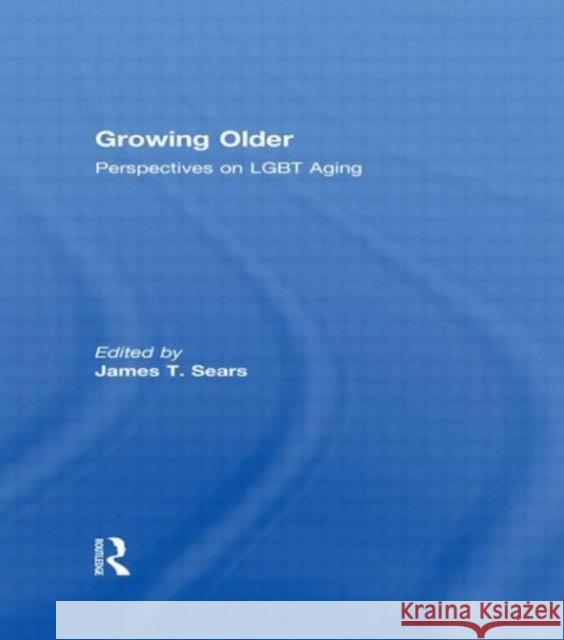Growing Older: Perspectives on Lgbt Aging » książka
Growing Older: Perspectives on Lgbt Aging
ISBN-13: 9781560237891 / Angielski / Miękka / 2009 / 220 str.
Growing Older: Perspectives on Lgbt Aging
ISBN-13: 9781560237891 / Angielski / Miękka / 2009 / 220 str.
(netto: 217,85 VAT: 5%)
Najniższa cena z 30 dni: 201,44
ok. 16-18 dni roboczych.
Darmowa dostawa!
LGBT older adults experience issues and challenges that are unique, including institutional heteronormativity, heterosexism in organizations, and homophobia among caregivers and social service providers. This book presents a diverse group of scholars, activists, social service providers, and researchers from around the globe examining current research, practices, and policies on aging among LGBT individuals. This revealing source lays out the significant challenges faced not only by this aging sexual minority population, but also for their social service providers--and those who train them. The chapters explore the Greater London area Polari Project, the adjustments made in the long-running HIV support group at St. Paul's Hospital in Vancouver, and the Liberation Psychology workshops in Ireland for lesbian and transgendered persons. This volume can serve as an excellent teacher resource for engaging undergraduate and graduate students in various professions who will be working with older LGBT adults. This text is extensively referenced and includes tables to clearly present research. This book is a valuable source for program administrators and supervisors, human behavior researchers, psychologists and psychotherapists, social planners and policy specialists, community developers and organizers, case managers, direct service practitioners involved with LGBT communities, educators, and students. This book was published as a special issue of the Journal of Gay & Lesbian Social Services.
Know the barriers to service provision for LGBT seniors LGBT older adults experience issues and challenges that are unique, including institutional heteronormativity, heterosexism in organizations, and homophobia among caregivers and social service providers. Growing Older: The Millennial LGBTs presents a diverse group of scholars, activists, social service providers, and researchers from around the globe examining current research, practices, and policies on aging among LGBT individuals. This revealing source lays out the significant challenges faced not only by this aging sexual minority population, but also for their social service providers—and those who train them. Chapters in Growing Older: The Millennial LGBTs explore the Greater London area Polari Project, the adjustments made in the long-running HIV support group at St. Paul’s Hospital in Vancouver, and the Liberation Psychology workshops in Ireland for lesbian and transgendered persons. This volume can serve as an excellent teacher resource for engaging undergraduate and graduate students in various professions who will be working with older LGBT adults. This text is extensively referenced and includes tables to clearly present research. Topics and research discussed in Growing Older: The Millennial LGBTs include:
- concise demographic information on LGB adults and the issues confronting them
- evidence-based psychological treatments with current research and clinical observations
- conceptual, practical, and ethical challenges in designing and conducting research
- research on older gay men and their understanding of the meaning of “family”
- research on the importance of friends to LGBT individuals
- how feelings of loss and the struggle to sustain community affect HIV+ gay men
- how Liberation Psychology workshops impacted older lesbians and transgendered persons in Ireland
- a comparative study of two participative projects involving older lesbians and gay men in the United Kingdom
- research on older lesbian and gay individuals’ experiences and expectations of Australian health and aged care service delivery
- and more!











